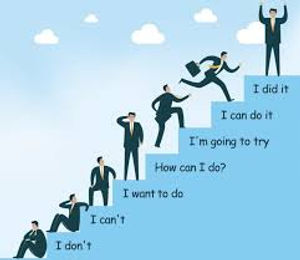Effective Advocacy is About
Believing in Yourself and Sharing Your Story
People with disabilities should be encouraged to advocate for themselves at an early age. That can be as simple as standing up for what they want. For those who don't communicate verbally, caregivers and therapists should find ways for them to advocate using a device, writing or typing.
Caregivers-you also have the right to advocate for your needs too: respite services, better healthcare, better support and on behalf of your loved ones when they are still developing a voice of their own.
Here are the main types you're asking about—school, political and services—along with a few others that are often included in disability advocacy:
1. School-Based Advocacy (Educational Advocacy)
This focuses on ensuring students with disabilities receive a fair and appropriate education.
Key aspects:
-
Ensuring access to Individualized Education Programs (IEPs) or 504 Plans
-
Advocating for inclusive classrooms or proper placement
-
Making sure accommodations and modifications are provided
-
Addressing issues like bullying, discipline, or transition planning
Who does it: Parents, advocates, lawyers, or the students themselves
2. Political Advocacy
This involves pushing for laws, policies, and systems that protect and advance the rights of people with disabilities.
Key aspects:
-
Lobbying for laws like the Americans with Disabilities Act (ADA) or IDEA
-
Campaigning for accessible public spaces, voting rights, or transportation
-
Engaging with lawmakers or public officials
-
Raising awareness through protests, petitions, or public speaking
Who does it: Individuals with disabilities, advocacy groups, allies, disability rights organizations
3. Service Advocacy
This focuses on helping individuals access the services and supports they are entitled to.
Key aspects:
-
Navigating Social Security Disability Insurance (SSDI) or Medicaid
-
Accessing housing assistance, job training, or healthcare services
-
Overcoming barriers in service delivery systems (e.g., long waitlists, eligibility issues)
-
Connecting people with disability service agencies or providers
Who does it: Case managers, social workers, family members, or disability advocates
Other Important Types of Advocacy
4. Self-Advocacy
When individuals with disabilities speak up for themselves, make their own choices, and know their rights.
5. Legal Advocacy
Involves lawyers or legal professionals helping enforce disability rights or challenge discrimination through legal systems.
6. Peer Advocacy
Support given by someone who also has a disability and understands similar experiences.

Providers who can help:
ARC of Lehigh & Northampton County help with IEP advocacy.
Where: 2289 Ave A, Bethlehem, PA
The ARC of Pennsylvania helps with state and federal policy advocacy.
Medicaid: If you need more information about Medicaid, click here.
Pennsylvania Health Law Project
We use our legal expertise and our experience working with clients to train advocates, health care providers, social workers, and consumers throughout the state on a wide range of health care related topics. These trainings include both in-person and webinar events, and range in topic from Medicaid 101 to more in-depth topics like successful appeal strategies, writing letters of medical necessity, and more.
123 Chestnut Street, Suite 400, Philadelphia, PA 19106
Call: 215-625-3990
The PEAL Center
Where: 520 Christopher Columbus Blvd, Suite 602, Philadelphia, PA 19123
Call: 215-567-6143
Our Family to Family (F2F) Health Information Center Coordinator, Kelly King, assists families across the entire state with health-related issues. Kelly provides support, information, and resources to families and professionals. She helps families with access to healthcare, health insurance, and community services.
Contact: Kelly King, Family to Family Coordinator specializing in Health Care & Community Svs.
Call: 412-281-4404 ext. 207 or email kking@pealcenter.org
Pennsylvania Health Law Project-Follow healthcare activity through Congress too.
Offers information, advice and direct representation to individuals accessing health care benefits under Medical Assistance.
Call: 1-800-688-4226